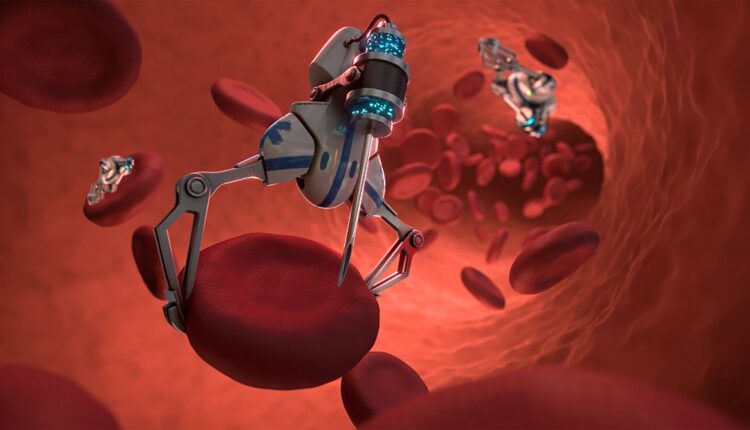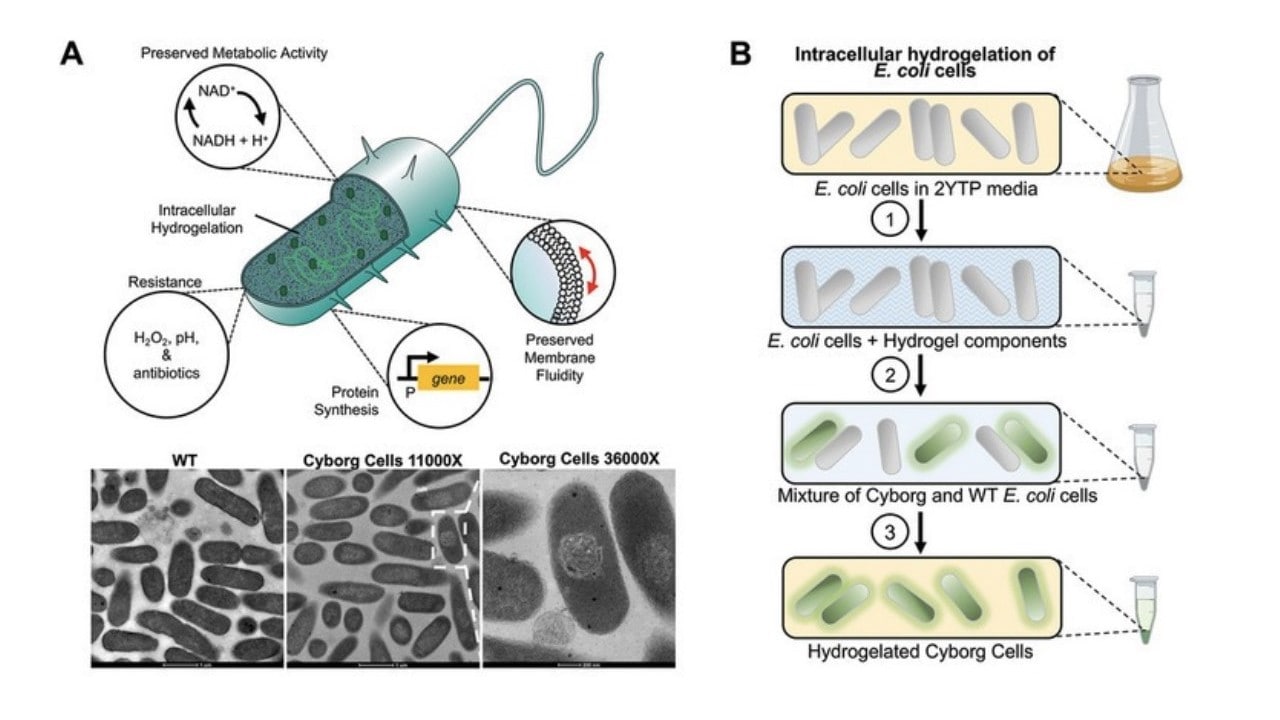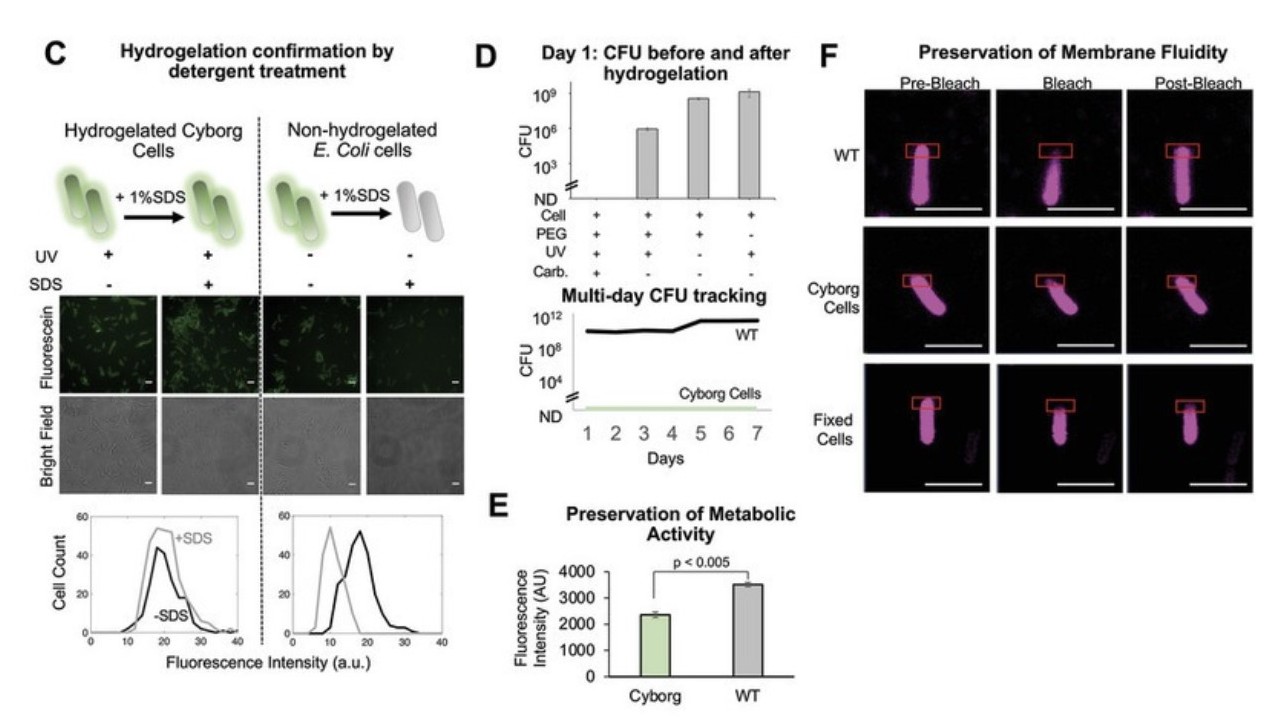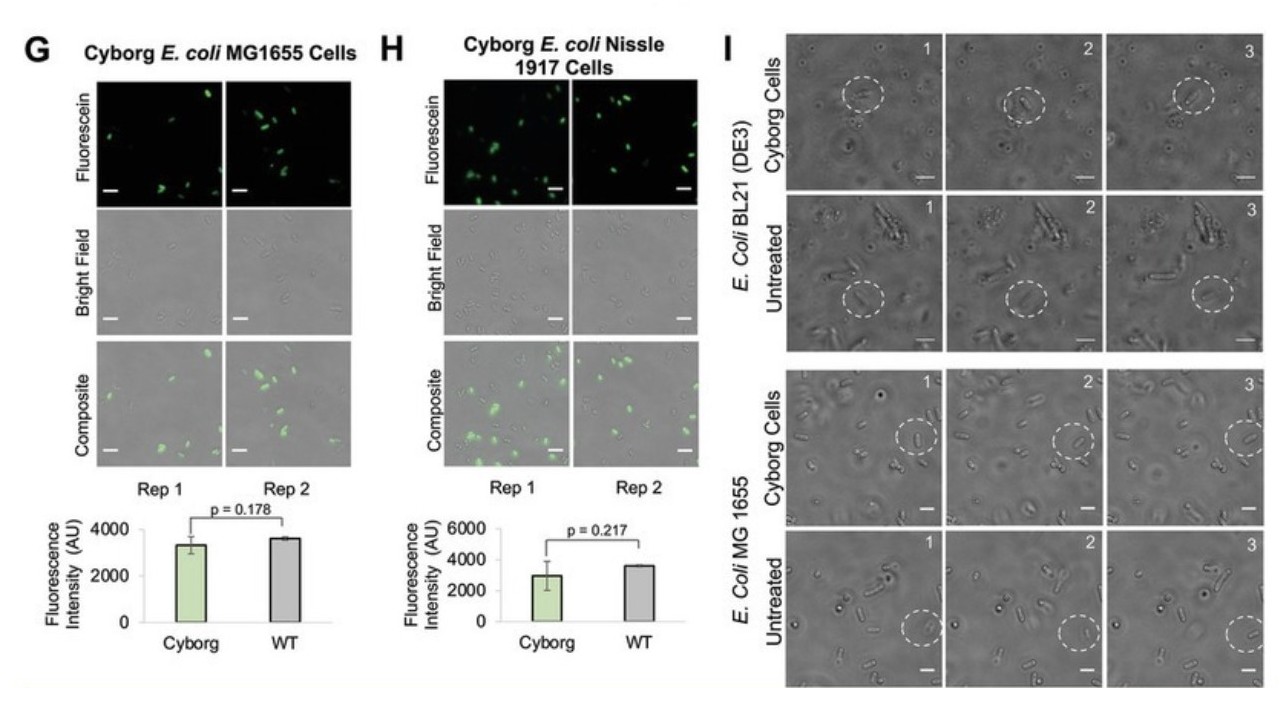Пока фармацевты зарабатывают миллиарды на лекарственных препаратах по повышению долголетия людей больных раком, инженеры по биомедицине разрабатывают инновационные продукты. Ученые из Калифорнийского университета научили бактерии бороться с раковыми опухолями.
Клетки-киборги помогают в борьбе с раком
Ученым удалось создать киборгов на основе бактерий и полимеров. Их особенность в полноценном участии в процессе метаболизма. А если точнее, то клетки-киборги участвуют в синтезе белков. Ведь именно клетки белка подвергаются вирусному заражению и способны сами себя воспроизводить.
Кто-то скажет, что до попадания в организм, эти клетки-киборги погибнут, проходя через сложный защитный механизм организма. Но все немного не так, как представляется. Благодаря полимерам, бактерии временно защищены. И их активация происходит под воздействием ультрафиолета. Именно облучение превращает клетки-киборги в гидрогелевый матрикс, имитируя работу внеклеточного матрикса.
Что интересно, стабильность клеток-киборгов на очень высоком уровне. Они не поддаются влиянию на них антибиотиков, изменению pH и защитным «инструментам» организма. Правда, есть один недостаток – клетки-киборги не умеют размножаться. Что снижает их эффективность в борьбе с саморазвивающимися клетками рака.
Говорить о внедрении киборгов в массы очень рано. Для этого требуется провести многолетние клинические испытания. К тому же, гигантам фармакологической индустрии такая инновация вряд ли понравится. Ведь, если ученым удастся вылечить рак, то надобность в других лекарствах отпадет.




